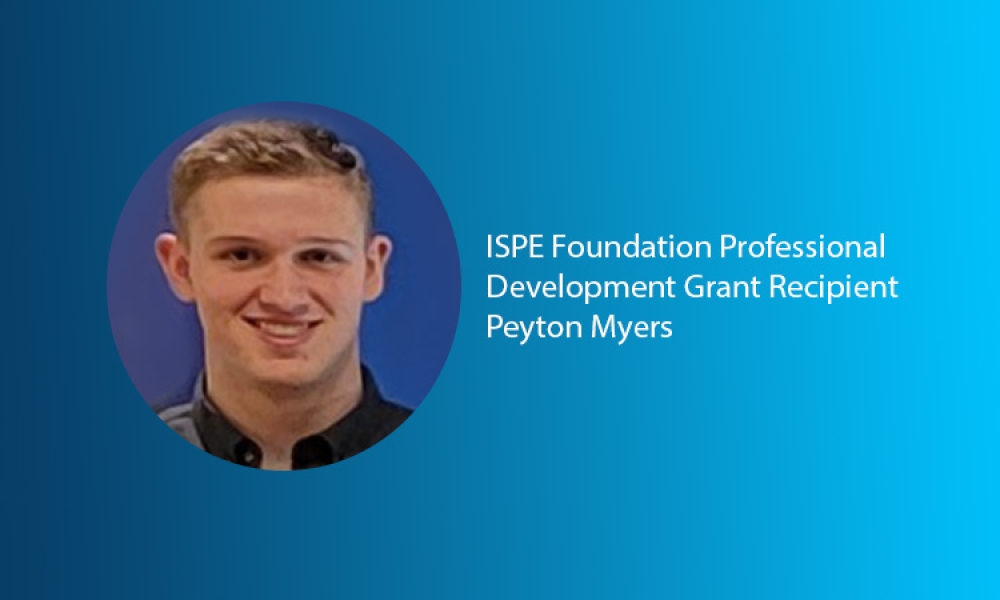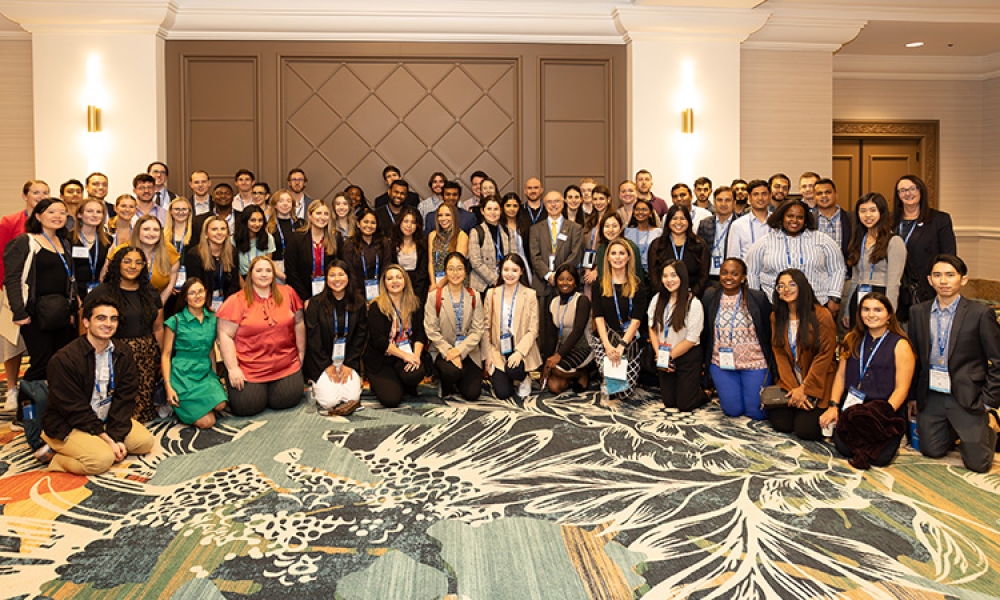2017 Quality Manufacturing Conference - Day 2 Recap


The New Quality Paradigm
François Sallans, Vice President, Quality and Compliance, and Chief Quality Officer at Johnson & Johnson, and the Honorary Industry Chair for the 2017 ISPE/FDA/PQRI Quality Manufacturing Conference, introduced the day’s first keynote speaker, Roger Nosal, as a “phenomenal professional, who has contributed to the evolution of Quality by Design (QbD).” Nosal is Vice President and Head of Global Chemistry, Manufacturing and Controls, at Pfizer Inc., Chair of ISPE’s Pharmaceutical Engineering Committee, and Co-Chair of ISPE Regulatory Track and DIA Quality Program Committees. Nosal began by making reference to the Women in Pharma (WIP) breakfast session. “We talked about failure,” he said. “Failure is where you learn. If you don’t try, you won’t fail, but you also won’t succeed.” He then told the audience that he would be speaking about collaboration, because the industry is at the crossroad of innovation, acceleration, and regulatory harmonization. “We are facing significant pressure to innovate and accelerate but the global regulatory landscape is faced with significant divergence in regulatory agency requirements that it cries out for global collaboration.
Global regulatory expectations and lengthy approval times for manufacturing optimizations, and continuous improvement initiatives pose a significant, punitive burden for product supply chains and barriers to innovation. Reducing regulatory barriers demands global regulatory convergence, joint collaboration among regulatory authorities, and incentives to establish a new quality paradigm. “Perhaps the most important lesson we learned from the QbD initiative,” said Nosal, “is that sharing knowledge and being transparent are critical to reconcile quality issues.” He stated that progress was the result of sharing between companies and regulators. In presenting an overview of the pharmaceutical industry landscape, he pointed out that the patient must remain the focal point. While medicines have significantly increased the chances of survival and improved quality of life for cancer patients—mortality rates have dropped 27% in the United States since 1991—the cost to develop new medicine has more than doubled in the last decade. Nonetheless, said Nosal, there are still some impressive achievements in the treatment of chronic diseases, such as cardiovascular disease, diabetes, and rheumatoid arthritis. “Death rates from non-communicable diseases dropped by close to 20% from 2000 to 2012," said Nosal. “Vaccines are helping to win the fight against communicable diseases.” Italy, for example, was the first industrialized nation to introduce a program for routine vaccination against Hepatitis B (HBV), resulting in an 82% decline in HBV incidence from 1991 to 2010. “People are living longer because of what we do,” he stated, citing the 85% drop in HIV-related deaths in the United States and Europe.
Biomedicine holds much promise on that front as well, as increasing numbers of companies are focusing on rare diseases. Nosal characterized the value of automation where less human involvement should reduce the risk for error, thus creating a more reliable and dependable manufacturing environment. Pushing innovation in manufacturing, he admitted, is not easy. “Manufacturers tend to resist when the barriers appear to outweigh the value.” Innovation is frequently confounded by divergent global regulatory requirements. He then went on to highlight innovative technologies in four categories, providing examples for each—precision medicine, improved manufacturing, performance- based control strategy, and patient focus and compliance—that could and should transform pharmaceutical manufacturing and quality. Nosal highlighted acceleration as a significant driver and industry pressure–something that requires early investment and a change in the investment paradigm. “We have to invest early in the development process, prior to proof of concept,” he said. “This puts tremendous pressure on understanding product and process attributes so that we can adequately identify quality risks relevant to patient safety and efficacy. Effectively managing acceleration demands increased engagement between regulators and industry. Regulatory harmonization is perhaps the thorniest challenge of the new quality paradigm Nosal proposed. “While working with ICH is one of the most viable ways to get people together, and while we do move in the right direction, still we have unpredictability beyond Japan, Europe, and the United States.
The benefits of collaboration,” he added, “would lead to a convergence of regulatory requirements, mutual recognition, and work sharing, as well as joint regulatory reviews.” “Agreements in principle do not reflect practice,” he said. Inconsistent implementation of regulatory guidelines results in what he called “regulatory creep.” “If assessors and inspectors are not trained to see the big picture, who is assessing benefits and risks?” He was quick to point out this could be an educational opportunity for ISPE. Nosal closed with his key message: global regulatory harmonization is essential to effectively shift the quality paradigm.
Celebrating 2017 Facility of the Year Award (FOYA) Winners
The thirteenth annual Facility of the Year Awards banquet opened on Tuesday evening, 6 June, with a welcome from David DiProspero, Chair of the FOYA Awards Committee. John Bournas, ISPE CEO and President, noted, “we are here to highlight the best of the best.” These eight remarkable facilities, he said—category award winners and honorable mentions—represent the diversity of thought that fuels intellectual discourse and fosters innovation. Mike Arnold, ISPE Board of Directors Chair, also addressed the gathering, noting FOYA’s significance to ISPE. As he surveyed the poster display of FOYA winners earlier in the day, he said, he felt as if her were “standing in the present and looking at the future.” He applauded the winners for being creators of disruptive innovation. Following dinner, Jim Breen, current Chair of the FOYA Judging Committee, welcomed incoming Chair Tony Crincoli, Executive Director and Head of Global Engineering Services at Bristol-Myers Squibb, and ISPE Board member. Together they presented awards to the 2017 Category Winners: Cook Pharmica: Equipment Innovation
COO Ryan Hawkins said, “Nobody completes projects like this alone.” He thanked his “great partners” and “talented team that made the difference.”
Bristol-Myers Squibb: Facility Integration
E. Morrey Atkinson, PhD, Vice President, Biologics Development and Clinical Manufacturing, accepted the award on behalf of a friend who had died from melanoma. “I’m working to make that a thing of the past,” he said.
Eli Lilly and Company: Facility of the Future
Bret Huff, Vice President of Small Molecule Design and Development, called the project a “win-win-win for everyone, but especially for the patients.”
Abbott Diagnostics: Operational Excellence
Everett Tucker, Division Vice President, Operations Strategy and Engineering, praised the “industry-leading body of work on display” among the honorees’ projects, and thanked his team for their “exceptional job delivering real results.”
Jazz Pharmaceuticals: Project Execution
Alan Mac Neice, Executive Director and Site Leader, said that the team—which had never built a pharmaceutical facility before—“did something truly remarkable by not recognizing where boundaries were.”
Eli Lilly and Company: Process Innovation
Bret Huff also accepted this second award, saying “This is much more than just a facility—it’s all of the systems that go into it.”
Nephron Pharmaceuticals: Honorable Mention
CEO and Owner Lou Kennedy accepted her award with obvious delight. “It’s like an Oscar! Thank you so much!” she said.
Novartis – UPenn: Honorable Mention
Joseph Palombit, MBA, RA, LEED-AP, Senior Project Manager for Real Estate, Design and Construction for the University of Pennsylvania Health System accepted the award, thanking his team for working through the challenge of construction in an occupied facility.
PT. Kalbio Global Medika: Honorable Mention
Christopher Sweeney, Senior General Manager, praised his “very young, hardworking, and dedicated team.” Noting that biotech is taking off in Asia, he also asked ISPE to “help bring knowledge and skills to the region.”
DiProspero closed the evening by reminding the audience that the overall FOYA winner will be announced at the 2017 ISPE Annual Meeting & Expo on 1 November 2017 in San Diego, California US.


